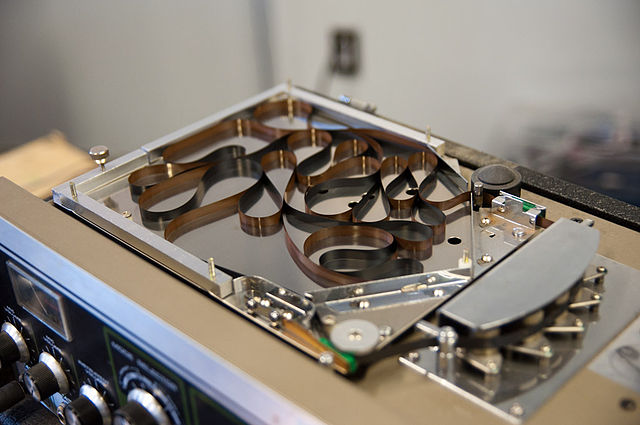Stephen Michael Reich is an American composer who is known for his contribution to the development of minimal music in the mid to late 1960s. Reich's work is marked by its use of repetitive figures, slow harmonic rhythm, and canons. Reich describes this concept in his essay, "Music as a Gradual Process", by stating, "I am interested in perceptible processes. I want to be able to hear the process happening throughout the sounding music." For example, his early works experiment with phase shifting, in which one or more repeated phrases plays slower or faster than the others, causing it to go "out of phase." This creates new musical patterns in a perceptible flow.
Steve Reich at the Holland Festival, c. June 1976
Reich circa 1982-1984
In music, tape loops are loops of magnetic tape used to create repetitive, rhythmic musical patterns or dense layers of sound when played on a tape recorder. Originating in the 1940s with the work of Pierre Schaeffer, they were used among contemporary composers of 1950s and 1960s, such as Éliane Radigue, Steve Reich, Terry Riley, and Karlheinz Stockhausen, who used them to create phase patterns, rhythms, textures, and timbres. Popular music authors of 1960s and 1970s, particularly in psychedelic, progressive and ambient genres, used tape loops to accompany their music with innovative sound effects. In the 1980s, analog audio and tape loops with it gave way to digital audio and application of computers to generate and process sound.
A looped tape, capstans, and multiple magnetic heads for multiple echos on a Roland RE-101 Space Echo unit



